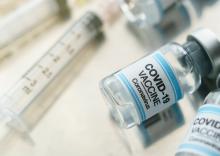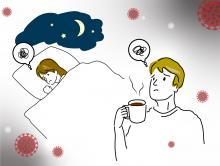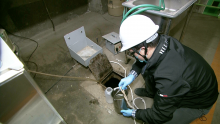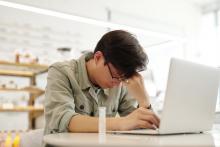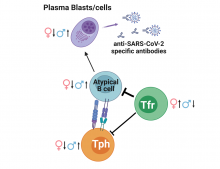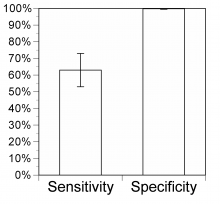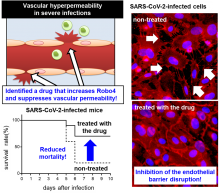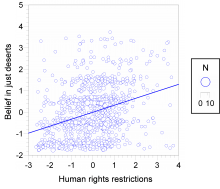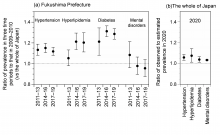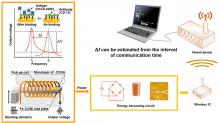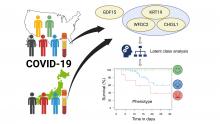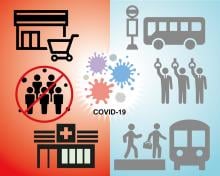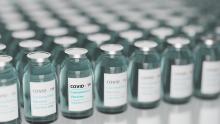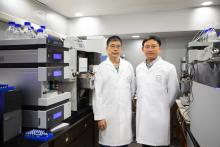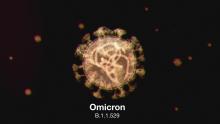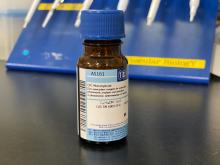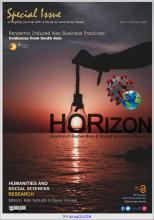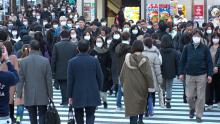Covid-19
News
03 Mar 2023
Asia Research News monitors the latest research news in Asia. Some highlights that caught our attention this week are that COVID is transmissible between dogs, a new material created to replace extracted teeth, and a fungi-eating plant that was thought to be extinct.
24 Feb 2023
Asia Research News monitors the latest research news in Asia. Some highlights that caught our attention this week are a robotic hand with a magic touch, a solution to reduce the negative effects of screen time in children, and a team charting dung beetles.
24 Feb 2023
A research group from the Osaka Metropolitan University Graduate School of Medicine conducted a survey of 285 patients regarding the long-term aftereffects of COVID-19. As a result, they revealed that more than half of COVID-19 patients still had residual symptoms, even close to a year afterward. It became clear that fatigue, abnormalities in senses of taste and smell, hair loss, and sleep disorders could persist, regardless of the severity of the initial COVID-19.
21 Feb 2023
Sifting through sewage for SARS-CoV-2 genetic material could help authorities tailor infection control policies.
13 Feb 2023
Team studies discrimination, mental distress, and work impairment in COVID-19 survivors.
13 Feb 2023
Researchers from Osaka University have shown sex-specific differences in the immune response to COVID-19 infection. By identifying and analyzing the immune cell population in COVID-19 patients, they showed that infection results in a reduced ratio of circulating follicular T regulatory (cTfr) cells to a network of antibody-producing proteins, correlated with dysregulated antibody production. This cTfr cell reduction is more significant in males, providing cellular evidence for the observed association between increased risk and male sex.
30 Jan 2023
Researchers from Osaka University compared the sensitivity of rapid antigen tests (RATs) and polymerase chain reaction (PCR) tests for the Omicron variant of COVID-19 using data produced by the Japan Professional Football League. They found the comparative sensitivity of RATs for Omicron was not affected by the duration from the onset of symptoms to testing.
13 Jan 2023
Researchers led by Osaka University demonstrated the role of endothelial cell-specific protein Roundabout4 (Robo4) in the reduction of vascular permeability and mortality in mouse models of severe infection. The research team identified a drug inhibitor that increased Robo4 expression and reduced mortality in sepsis and SARS-CoV-2 mouse models of infection. These findings may aid in the development of drugs to reduce the mortality rate of severe infectious diseases.
23 Dec 2022
Asia Research News monitors the latest research news in Asia. Some highlights that caught our attention this week are how a wasp uses its genitals to defend itself, a compound commonly found in mushrooms that could delay cognitive decline, and sunshine as a cure for myopia.
19 Dec 2022
Researchers from Osaka University found that the “belief in just deserts”, which is the idea that infected individual deserves to be infected, was associated with attitudes about government restrictions during public health emergencies in the context of the COVID-19 global pandemic. This information could lead to new strategies for combating discrimination, prejudice, and stigma against COVID-19 patients.
15 Dec 2022
Understanding how bats tolerate viral infections, Material separates water from...water, The virtual sense of touch polished to next level and COVID-19 negatively impacted early-careers and female researchers. Read all in the December's Editor's Choice.
13 Dec 2022
A study by Osaka University has shown that the prevalence of non-communicable diseases, which included hypertension, hyperlipidemia, diabetes, and mental disorders, increased after the Fukushima disaster and the COVID-19 outbreak. These findings emphasize the importance of improving post-disaster health promotion strategies and recommendations.
02 Dec 2022
What if you could tell if your surroundings contained COVID-19 particles or droplets the moment they or you entered the vicinity? This is now closer to reality. A research group has engineered a battery-less, self-powering device that can wirelessly transmit the detection of coronavirus in the air.
29 Nov 2022
Kavli IPMU's Jia Liu is part of team which found the number of astronomy research papers being produced increased during the COVID-19 pandemic, but the number of new or junior researchers entering the field has dropped, and no single country's female astronomers were able to be more productive than their male colleagues on average.
25 Nov 2022
Researchers led by Osaka University identified plasma proteins associated with critical pathogenesis in COVID-19. Using a novel blood proteomics method, the researchers evaluated two discovery cohorts and one validation cohort of patients with COVID-19 and healthy volunteers. Cell adhesion proteins WFDC2, GDF15, CHI3L1, and KRT19 were shown to be associated with disease severity in patients with COVID-19, and may serve as potential targets for therapies to treat COVID-19 infection.
22 Nov 2022
The research team investigated the role of D-amino acids in severe viral infection. Mouse models of influenza A and COVID-19 infection and patients with severe COVID-19 demonstrated reduced D-amino acid levels in the blood. Supplementation with D-alanine mitigated body weight reduction in IAV model mice and improved survival in COVID-19 model mice. D-amino acids may represent potential biomarkers and therapeutic agents for the treatment of severe viral infection.
04 Nov 2022
Asia Research News monitors the latest research news in Asia. Some highlights that caught our attention this week are jellyfish-like fossils, mythic diseases, and a transistor that can detect cancer cells.
31 Oct 2022
While both protect from severe disease, inactivated SARS-CoV-2 and spike mRNA vaccines trigger different T-cell responses.
19 Oct 2022
Osaka Metropolitan University researchers conducted a study of human mobility to find effective lifestyle changes that enable people to exist with the novel coronavirus COVID-19, while maintaining social and economic activities. They found that restricting the human mobility in specific areas according to the state of the pandemic, rather than uniformly controlling human mobility, could be effective in reducing the number of new COVID-19 infections.
14 Oct 2022
Asia Research News monitors the latest research news in Asia. Some highlights that caught our attention this week are shrinking mangroves, a wind harvester that can generate electricity using a breeze, and a new supercontinent 300 million years from now.
12 Oct 2022
—For acceleration of social implementation of wastewater-based epidemiology—
12 Oct 2022
A study in Japan finds antibody response to the Moderna COVID-19 mRNA vaccine does not vary depending on the time of day when the dose was received.
10 Oct 2022
A study led by Hong Kong Baptist University (HKBU) has revealed the association between rapidly fading antibody levels in some recovered COVID-19 patients and a high plasma concentration of a metabolite called glycylproline (gly-pro) and its producing enzyme.
10 Oct 2022
The SARS-CoV-2 Omicron variant escapes the immune response better than its coronavirus ancestors, but has also facilitated our transition to a society that can live with COVID-19.
06 Oct 2022
Low concentrations of cetylpyridinium chloride, an antimicrobial agent present in mouthwashes, inhibit the infectivity of four variants of SARS-CoV-2.
29 Sep 2022
A simple and economical method of detecting SARS-CoV-2 viral loads in wastewater with high sensitivity has been developed, expanding the use of wastewater-based epidemiology for tracking the virus in populations.
23 Sep 2022
A special issue of Horizon Journal of Humanities & Social Sciences Research (JHSSR Vol.4 (S) Oct. 20212) is now published. This issue includes papers on the Covid-19 pandemic, developments in business and digital practices, changes in social media behavior in South Asia.
23 Sep 2022
Asia Research News monitors the latest research news in Asia. Some highlights that caught our attention this week are the effects of extreme weather becoming more likely due to climate change and leading to sinking cities, putting googly eyes on cars that help pedestrian safety, and how many ants there are on Earth.
13 Sep 2022
An estimated 1208 excess suicide deaths for men and 1825 for women were recorded during the COVID-19 Pandemic in Japan through December 2021, with the impact being greatest in women and younger age groups.
Events
28 May 2020
Flattening the Curve with Digital Health: Episode 3 - South Korea
14 May 2020
Flattening the Curve with Digital Health - Episode 1 - China
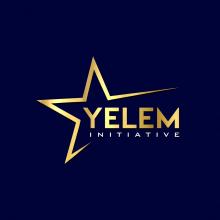
23 Nov 2021
The event creates a platform for the creativity of inventors from all over the world.
Researchers
ICDDR,B: Centre for Health and Population Research
Infectious Disease Epidemiologist. Enlisted in the IHR roster of Experts. Included in the Emergency committees of MERS CoV, Ebola and Poliomyelitis. Current Chair and members in different committees of WHO.
Giants in history
Wu Lien-teh (10 March 1879 – 21 January 1960) was a Malaysian-born doctor who invented a mask that effectively suppressed disease transmission. Winning the prestigious Queen’s Scholarship enabled Wu to become the first Chinese student to study medicine at the University of Cambridge.


